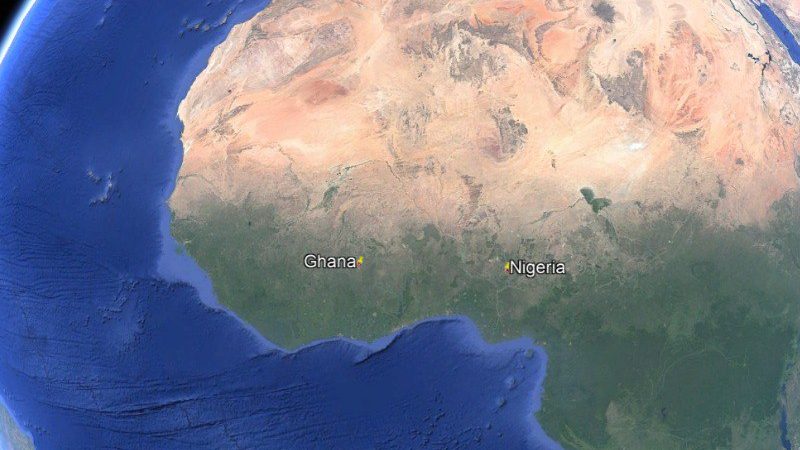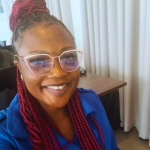African Institute of Excellent Research
Establishing the African Institute of Excellent Research (AIER) is a strategic initiative to address critical gaps in ecosystem research and policy formulation across Africa. By focusing on high-quality, grant-funded research and disseminating findings through an accessible platform, AIER aims to inform evidence-based policymaking and enhance the livelihoods of indigenous communities.
The Imperative for High-Quality Ecosystem Research
Africa's ecosystems are undergoing rapid transformations due to factors such as climate change, biodiversity loss, and unsustainable resource exploitation. These changes threaten the ecological balance and the socio-economic well-being of communities dependent on natural resources. Effective management and conservation of these ecosystems require robust scientific data and analysis.
However, a significant challenge in the region is the scarcity of reliable, context-specific research. A study by Achieng et al. (2023) highlights that the lack of comprehensive biodiversity data hampers the development of sound conservation policies in Afrotropical ecosystems. This data deficiency is compounded by limited financial and technical capacities, leading to inadequate monitoring and governance of biodiversity resources.
Moreover, the quality of existing research often falls short due to methodological weaknesses and a lack of integration of local knowledge systems. This undermines the credibility of research findings and their applicability in policymaking processes. The adoption of evidence-based conservation practices, which systematically assess scientific information and incorporate local and indigenous knowledge, is crucial for effective environmental management.
Consequences of Low-Quality Research on Indigenous Communities
Indigenous communities are disproportionately affected by the consequences of poor-quality research. Inaccurate or irrelevant studies can lead to misguided policies that fail to address the actual needs and challenges faced by these populations. Furthermore, the phenomenon of "helicopter research," where external researchers collect data without meaningful engagement with local communities, has led to research fatigue and distrust among indigenous populations.
The erosion of indigenous knowledge systems, exacerbated by inadequate documentation and integration into formal research, further marginalizes these communities. In Tanzania, for instance, the loss of indigenous knowledge due to cultural shifts and lack of intergenerational transmission has negatively impacted natural resource management practices.
Enhancing Livelihoods Through Quality Research
High-quality, inclusive research has the potential to significantly improve the livelihoods of indigenous communities. By integrating scientific methodologies with indigenous knowledge, research can yield more accurate and culturally relevant findings, leading to policies that effectively address local challenges. For example, participatory research approaches in the Amazon have demonstrated that combining local perceptions with scientific data enhances the effectiveness of climate adaptation strategies.
Furthermore, evidence-based policies informed by rigorous research can lead to sustainable resource management, improved food and water security, and resilience against environmental shocks. The United Nations emphasizes that restoring degraded ecosystems can generate significant economic benefits, including increased ecosystem services and climate change mitigation.
The Role of AIER in Advancing Research and Policy
The African Institute of Excellent Research aims to bridge the gap between scientific research and policy implementation by:
In conclusion, the establishment of the African Institute of Excellent Research is a timely and necessary endeavour to elevate the quality of ecosystem research in Africa. By addressing existing gaps and promoting inclusive, high-quality research, AIER will contribute to informed policymaking and the sustainable development of indigenous communities. The uniqueness of our organization is that we research into how the negative findings of the ecosystem impact women in indigenous regions.
The directors are grateful to the International Atomic Energy Agency for continually sponsoring and supporting the research of PhD candidates, including the directors of this noble institution, some of which have been published on our websites. Research Fellowships were carried in renowned institutions in Europe and North America. In honour of the knowledge and skills acquired through their funding, we hope to make Africa a better place with the establishment of African Institute of Excellent Research.

Countries in Africa, where our impact has been felt
I've known Priscilla for more than a decade and it always amazes me how she is able to combine a great academic track record with making an impact in the society. She started African Institute of Excellent Research some years ago but her passion has not diminished, nor has her love for children and young people in general. Keep up the good work.


Priscilla Lartsey, is the CEO and founder of African Institute of Excellent Research. She is currently a final year PhD candidate, with the University of Ghana and a past International Atomic Energy Agency fellow, affiliated to the University of Quebec in Montreal-Canada. Her Master’s and Bachelor’s degree were both obtained from the University of Ghana. Her area of specialty is hydrogeology- A field of study she is really passionate about. She has three scientific publications in this regard. She loves to impart knowledge to all age groups of individuals, with a soft spot specially for children. Her love for children, leads her to children’s ministries of churches, in any country she finds herself. She won an award in this regard at Redeemed Christian Church of God (RCCG), Canada. Most importantly, she is a lover of the Lord who has seen the hand of the Lord in most areas of her life.

Etuk, Mary Nsikanabasi was born in Nigeria on October 29th, 1983. She holds a PhD in Hydrogeology (2023), a MSc in Hydrogeology (2010) and a BSc. in Geology (2006). In 2020, she was awarded an International Atomic Energy Agency fellowship to develop a three- year project in Nigeria, in collaboration with the University of Pisa. The project was aimed at the application of isotope hydrology to groundwater management in Abuja. She has a good knowledge of both surface and groundwater systems of Abuja, Nigeria. Since 2018, she has been working as an occupational health and safety officer in the Nigerian civil service. Her research interests include the investigation of groundwater quality in developing countries, the use of environmental isotopes to assess the origins of groundwater pollution and the role of hydrogeology in supporting science-based management practices. She an author of several articles and a mother of three children.